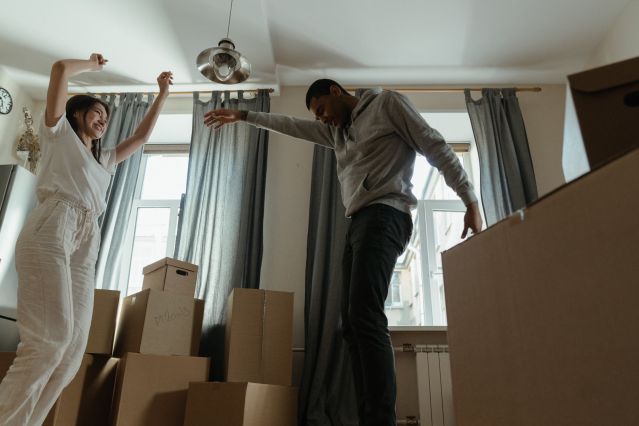Flow
Winging It: The Importance of Spontaneity
Personal Perspective: Spontaneity comes from the cessation of habitual action.
Posted January 1, 2024 Reviewed by Monica Vilhauer
Key points
- The great benedictions of spontaneity are freedom and the sense of possibility.
- We don’t just crave familiarity but its opposite—spontaneity, novelty, discovery, surprise.
- Habit and routine aren’t the enemies of aliveness. Rigidity is.

My partner and I recently returned from a month-long vacation—a 4000-mile road-trip through the Southwest—which was entirely and deliberately unplanned. It was something neither of us had ever done before on vacation. We reserved not a single night’s lodging, didn’t book any tours or excursions ahead of time, and mapped out only a general route.
Only in retrospect did I realize what a perfect reflection it was of the phase of life I’m presently in—a recent retirement that I’m determined not to plan out within an inch of its life. A retirement I’m kicking off with some extended time out—an unscripted break from busyness-as-usual and the urge to fill up the suddenly empty spaces on my calendar, an urge that, to be honest, feels more like an urgency.
But what both my desert sojourn and my initial foray into retirement are reminding me of is the great benediction of spontaneity—freedom. A delicious sense of liberation, possibility, and the (let's call it) spiritual opportunity to rebalance the balancing act between doing and being, between sticking to agendas and following what moves me in each moment, each hour, each day.
On the road, for instance, we found that not having advance lodging reservations was only very occasionally inconvenient—thanks to the internet and to traveling in September when school is back in session—and that the latitude and opportunity it allowed us more than made up for it. Also, not having to constantly be somewhere gave us the chance to follow our impulses wherever they led, and stay in a place for as long or short as we wanted.
It also allowed me to luxuriate for a whole month in one of the things I tell myself I’m going to miss most when this life is over—the natural world. I gave myself over to entire afternoons and whole days of just soaking it in and being soaked in it, immersed to my heart’s content in the primary ingredient of awe, which for me is beauty. It allowed the tangled world to unknot itself before me, and my henhouse of a mind to settle down.
Such an extended and extensive departure from the familiar—such a deep soak in spontaneity—also showed me how much of daily life is made up of habit and routine (and how few breaks I allow myself from it). I sleep on the same side of the bed every night, follow the same choreography of bathroom routines every morning, the same procedures for making coffee and checking emails/the weather/the stock market/the news, the same sequence of exercise regimens every afternoon, and on and on throughout the day, and the week, and the years that are always rushing down the hourglass. And the way we live our days is the way we live our lives, and there’s just a lot of routine in it.
Granted, it gets things done, it’s soothing and efficient, and since it’s largely on autopilot we don’t have to keep reinventing the wheel every morning. But we don’t just crave efficiency and predictability. We also crave their opposite—spontaneity, novelty, discovery, passion, an adrenaline rush, the bedlam of love and creativity, for some people a locker at the bus station. We like the world to occasionally be unpredictable and full of surprises. We like to feel alive. And we know that being alive without feeling alive is like eating food with no taste to it, and that we should insist on living a life that enlivens us rather than deadens us.
As I discovered on my unplanned road-trip, and am continually discovering during this non-planning phase of my retirement, spontaneity comes about not through action but through the cessation of habitual action—and seeing what happens next. As meditators and improvisational actors know, when you become practiced at being in the moment, you’re better equipped to go with the moment.
In fact, when performance artist Nina Wise asks students what brings them to her improv classes, they talk of something missing in their lives: a longing to rekindle the spirit of self-expression, spontaneity and play—the turbines of creativity. They want to lift the lids they’ve clamped over their lives, beneath which are great balls of fire—energy, enthusiasm, adventure, expressiveness, aliveness.
Not that habit, routine, and structure are the enemies of aliveness. Rigidity is. Inflexibility. To live passionately, the painter Pierre Bonnard once said, is a basic human desire and an artistic necessity—“What I want at all costs,” he said, “is to escape the monotony of life”—but this isn’t to denigrate monotony. A certain amount of it is an earthly requirement.
Before life will come forth, before it will take root or take wing, it has to have some guarantee of nature’s stability. And nature largely cooperates. It’s mostly steadfast, its laws administered with an even hand and its changes delivered by slow drip. This makes it safer to come out of the shell, the sea, the cave and the ground, knowing that the laws of light and gravity, the proportions of chemistry, the ground beneath your feet, will stay the course long enough for you to get your business done and get back to the burrow by nightfall.
We refer to the laws of nature because nature operates within limits, just as we do, and is rife with restrictions on its own exuberances. There are habitable zones and uninhabitable zones, aridity and drought, predation and pecking orders, diseases and diebacks, competition and consequences. Evolution itself schools us in continuity rather than change, hardwiring us to avoid risks, seek security, and transform novelty quickly into habit.
So does society. The main character in a novel called The Moviegoer, by Walker Percy, is a model citizen, model tenant, creature of habit, regular as a monk, who takes pleasure in doing all that’s expected of him, though he once dreamed of doing something great.
In fact, throughout the book he describes being routinely stopped in the middle of his middlebrow days by a reverie about what he calls “the search.” He never quite articulates what the search is about, but it seems to be of a vaguely spiritual nature, and something he believes anyone would undertake “if he were not sunk in the everydayness of his own life,” having condemned himself to being “an Anyone living Anywhere,” settling for what he calls “the Little Way.”
To be aware at all of the possibility of the search, he insists, is to be “onto something” (and not to be onto something is to be in a kind of despair), sensing that there’s more to this life than stability and certainty, and the somewhat narcotic effect of habit and routine. And that if we don’t resolve to live in an everyday world that inspires us rather than deflates us, we become not so much searchers as fugitives.




